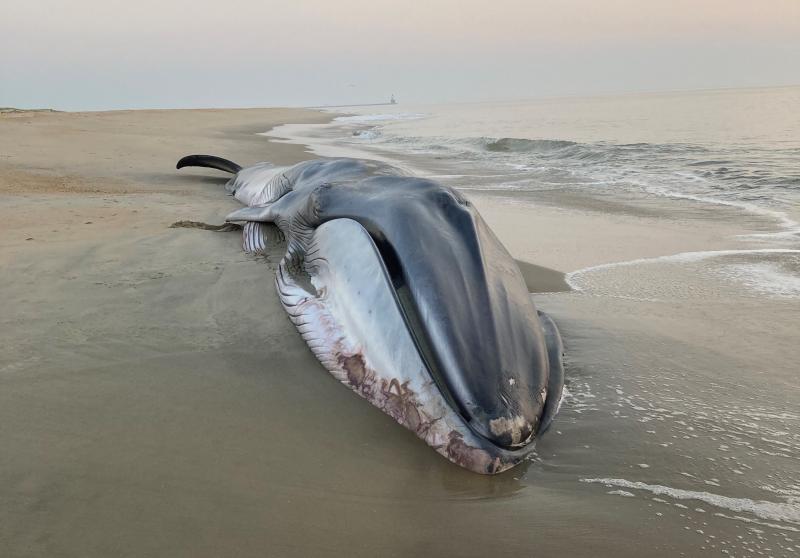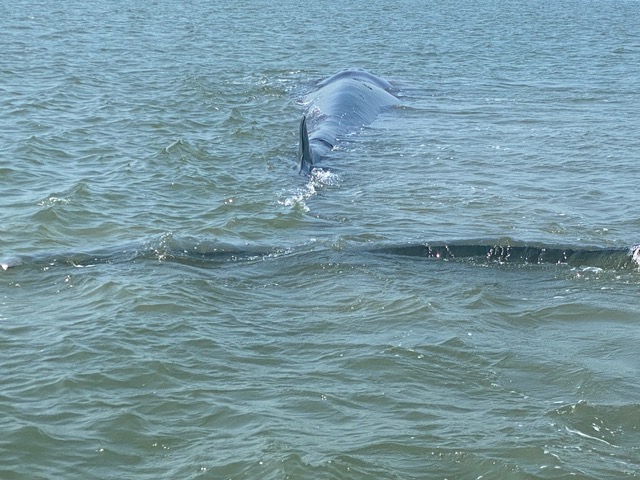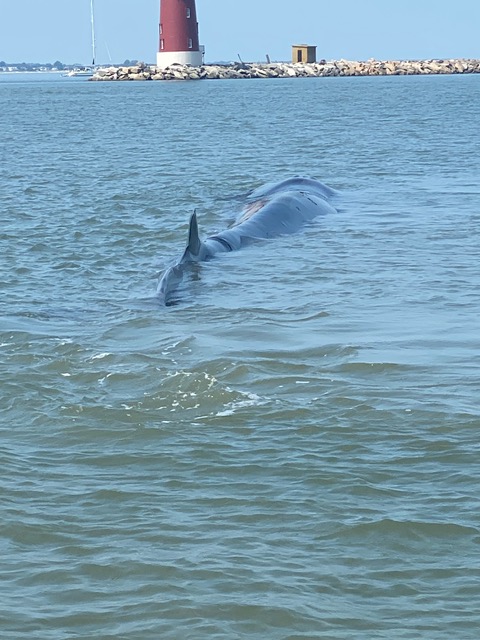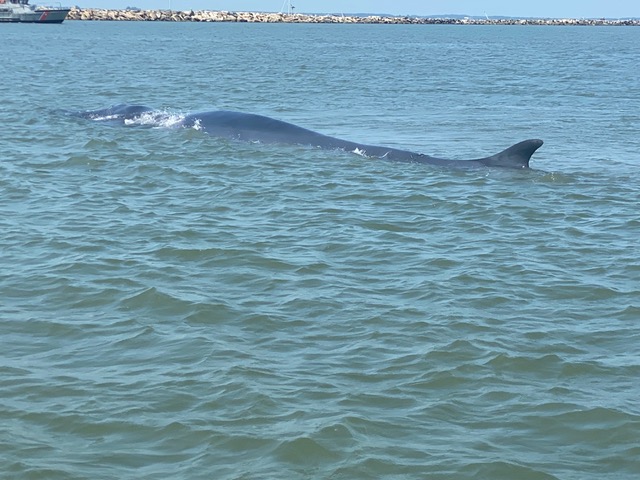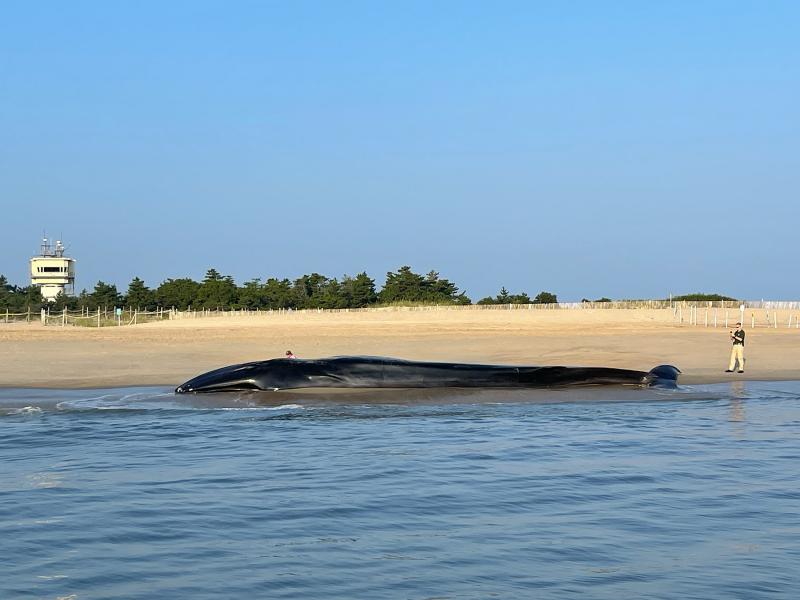UPDATE #2: Beached whale at The Point has died
Delaware Department of Natural Resources and Environmental Control announced late in the day Aug. 27, that the fin whale stranded at The Point in Cape Henlopen State Park has died.
The endangered whale beached at Cape Henlopen has died, said DNREC on its Twitter page. DNREC said Marine Education, Research and Rehabilitation members and a team of partners from the region are taking measurements and samples from the whale, and then heavy equipment will be used to dig a deep trench to bury the 50-foot fin whale on the beach.
A fin whale stranded itself Aug. 26 in the shoals of Delaware Bay, between The Point of Cape Henlopen State Park and Delaware Breakwater East End Lighthouse. At late morning, there were multiple boats from Department of Natural Resources and Environmental Control police floating nearby as the tide slowly started to come in.
More recently, The News Journal reported the whale had moved to the ocean side of The Point.
On its Facebook page, The MERR Institute issued a statement on the status of whale Aug. 26:
A live fin whale was reported stranded on a sandbar on the bayside of the Point at Cape Henlopen State Park in Lewes, Delaware. MERR responders were taken to the scene with the help of the Delaware Natural Resources Police to get a closer look at the whale and evaluate it for any potential injuries or entanglement.
Since the initial observation this morning, the whale has moved off the sandbar and closer to shore, rather than into deeper water, which is not a good sign. The whale seems to be struggling, and in the process of beaching itself. Biologists are standing by to monitor the animal, and NOAA is working with stranding network partners in the region to develop a response plan, which includes options for palliative care, sedation, or euthanasia.
At this time, we do not know what has caused this whale to strand, but when large whales come close to shore like this, there is usually an underlying reason like injury or disease. The team on scene has not identified any obvious injuries at this point. Sadly, in situations like this, there is often very little we can do to help save the whale; returning the whale to deeper water – which is a challenge under the best of circumstances for animals of this size and weight – would only prolong its suffering and it would likely strand again.
Fin whales are the second-largest whales on earth, after blue whales. They are listed as endangered throughout their range and are more commonly found in deep waters.
Members of the public should always stay at least 150 feet away from living whales, including by vessel or drone, for everyone’s safety. The public can report strandings in Delaware to MERR at 302-228-5029.
According to a 2019 article from Rob Rector, a volunteer for Marine Education, Research and Rehabilitation Institute, Delaware is home to at least 10 species of whales, including fin whales. The fin whale is the second-largest whale on the planet, can reach lengths of up to 85 feet and a weight of 80 tons, he said.
Editor’s note: The type of whale was incorrectly identified earlier. The correct whale is a fin whale.
Chris Flood has been working for the Cape Gazette since early 2014. He currently covers Rehoboth Beach and Henlopen Acres, but has also covered Dewey Beach and the state government. He covers environmental stories, business stories and random stories on subjects he finds interesting, and he also writes a column called Choppin’ Wood that runs every other week. He’s a graduate of the University of Maine and the Landing School of Boat Building & Design.











